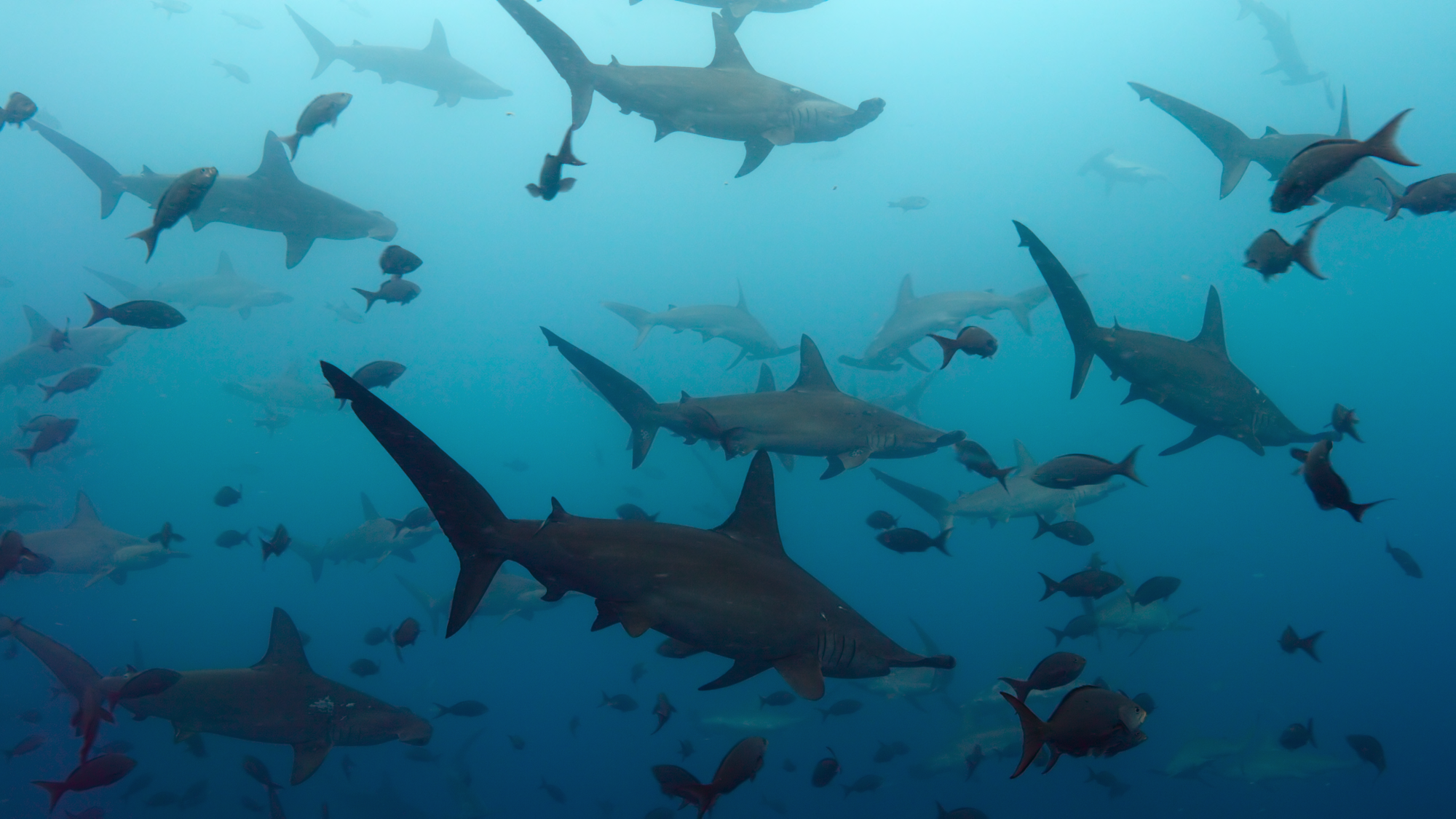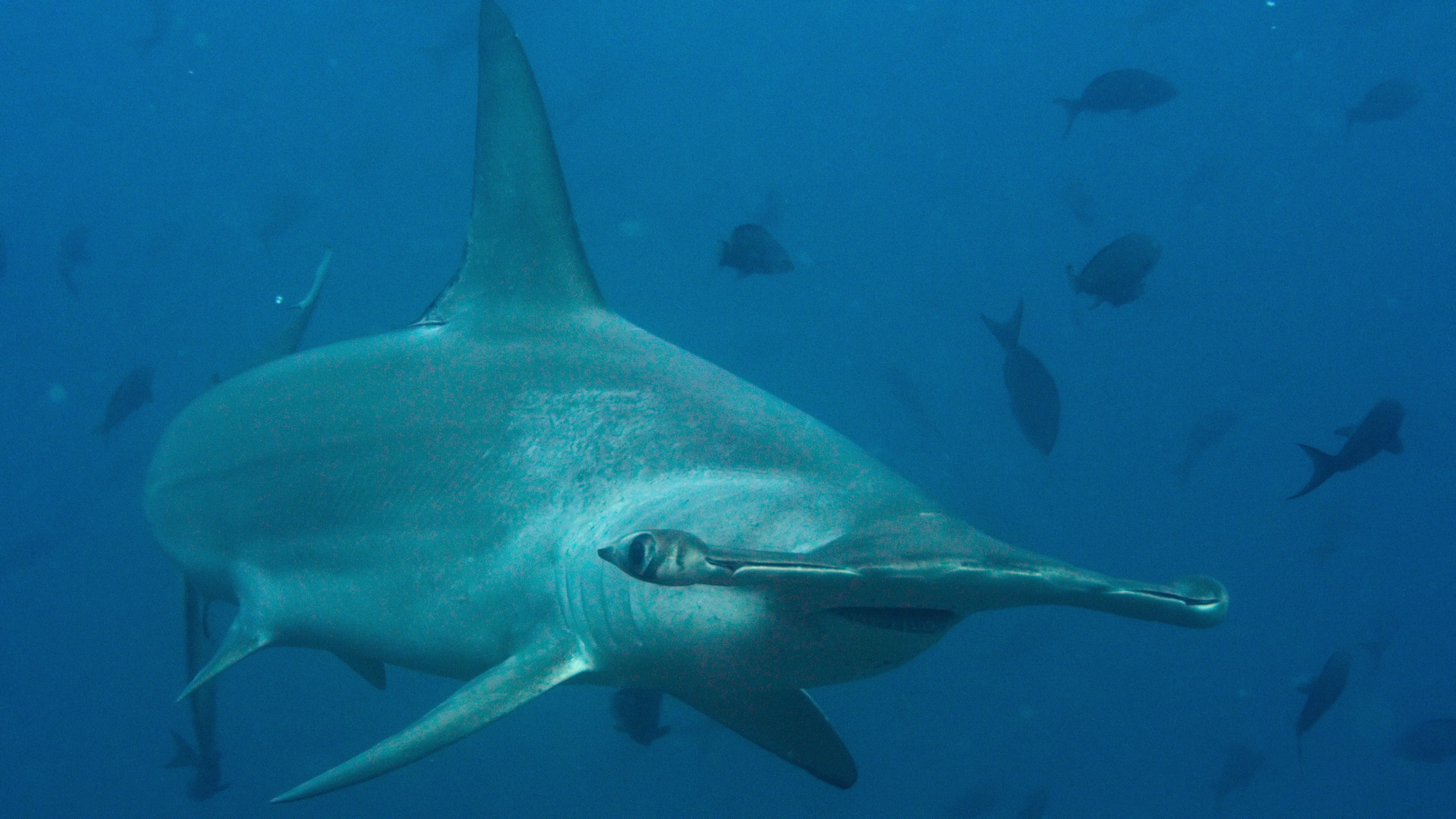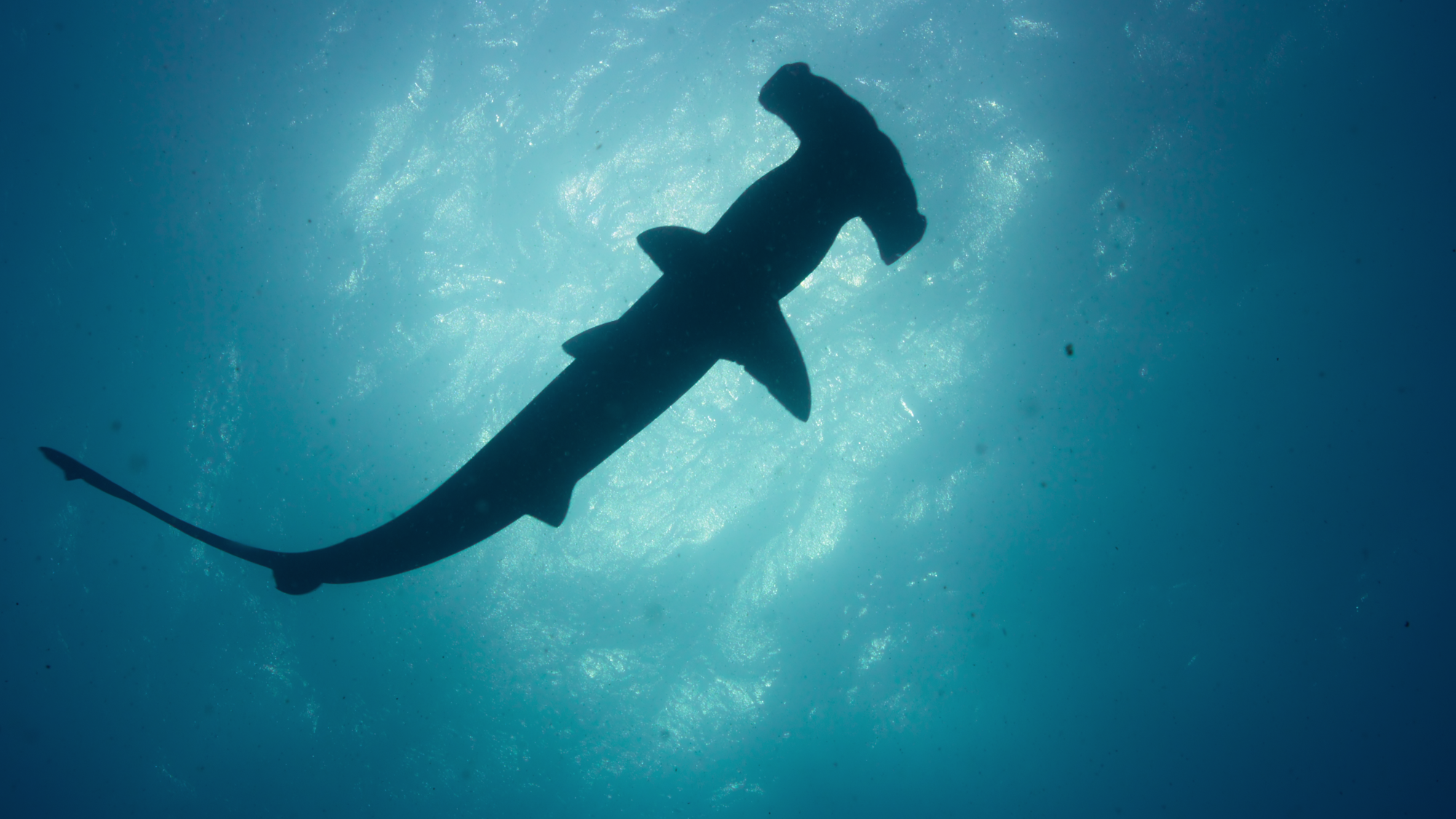Hundreds of hammerhead sharks gather around an ancient volcano in the Pacific Ocean, drawn by secret signals radiating from the seabed, a new clip reveals.
The footage, which features in the third episode of Netflix's new wildlife documentary series "Our Living World," shows a school of hammerhead sharks (Sphyrnidae) circling Cocos Island — a volcanic island in the eastern tropical Pacific about 310 miles (500 kilometers) southwest of mainland Costa Rica.
Cocos Island is a known haven for endangered hammerhead sharks, but scientists still aren't sure how and why so many sharks navigate across swathes of ocean to convene there every year.

"We don't really know how these sharks are doing this," Ben Roy, the series producer of Our Living World, told Live Science. "We know that they've got sensors in their heads and we know that these sensors pick up on the magnetic signature of these cool volcanic rocks."
The island formed when lava erupted from an ancient underwater volcano and solidified, until it eventually rose 12,000 feet (3,660 meters) above the seabed.

For the episode, film crews followed a young female hammerhead shark as she left her coastal nursery and traveled 300 miles (480 km) across the Pacific Ocean to the volcanic oasis, where scientists think the sharks assemble to relax, socialize and find a mate. The female instinctively knew the way to Cocos Island thanks to electromagnetic signals emanating from hardened volcanic rocks on the island's slopes.
Related: Watch great white shark get mobbed by gang of seals in 'incredible and surprising' footage
In the clip, the young female joins hundreds of other hammerhead sharks as they form a vortex around the island. At "the actual moment when all those hammerheads aggregate and start to swim in those cyclones," Roy said his team "got lucky with some cracking behavior."
This isn't the first time sharks have been seen mysteriously congregating. Scientists previously documented a hammerhead shark gathering in the tropical waters of French Polynesia, in the South Pacific Ocean, but that assembly attracted only females.

Our Living World
The hammerhead shark gathering is just one astonishing scene among many featured in the four-part nature series, which premieres Wednesday (April 17) on Netflix. The show highlights the intricate links that support the huge web of life on Earth, from the invisible fungal networks that nourish forest ecosystems to transatlantic clouds of nutrients that blow from Africa to South America and rain down on the Amazon.
"The links are what makes this series totally different to anything I've been involved with or seen in terms of wildlife nature shows on the TV, because what we've tried to do is tell a story that shows how individual animal lives and animal behaviors are connected to a much bigger picture," Roy said.
In telling these stories, "we were really looking for the wow," Roy said. "We are potentially the first generation to be able to fully grasp the connectivity of what's going on here and potentially the last generation to be able to put that knowledge to good use."
The hammerhead shark assembly footage fulfills every expectation Roy had for the show, he said. "Talking about those 'wow' revelations — for me that was one of them," he said. "Sharks need volcanoes? Who knew!"







